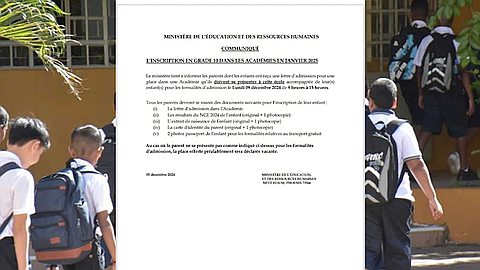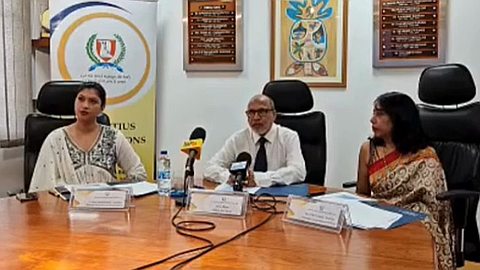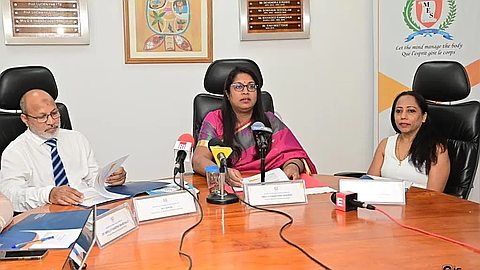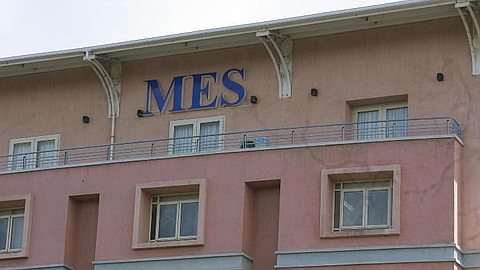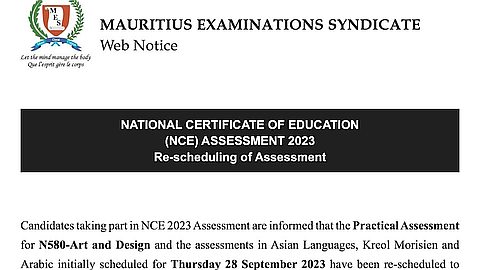A Technology Education Program Will Be Launched In 10 Secondary Schools In January 2024
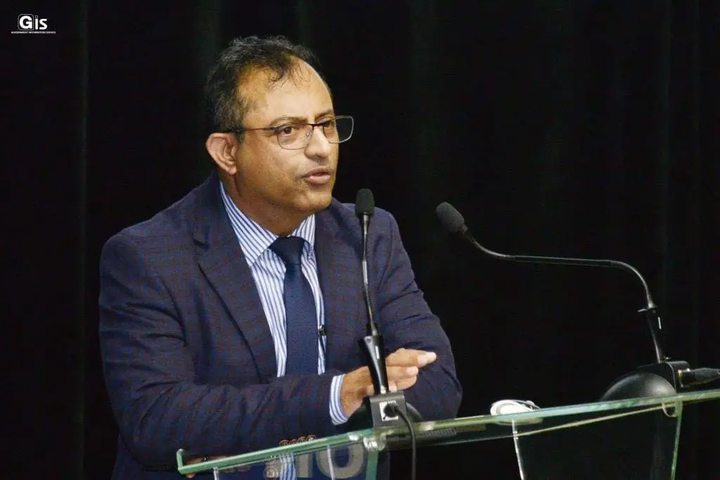
Yugesh Panday
This statement was made by the Acting Director of e-Education and Technical Education, Mr. Yugesh Panday, on Thursday, during the briefing session on Technological Education, held at Core Building, in Ebène.
Rectors of several secondary schools, representatives of the Mauritius Institute of Education and the Mauritius Examinations Union, as well as other members affiliated with the education sector were also present on this occasion.
In his speech, Mr. Panday underlined the urgency of developing students' technological skills early on, thus recognizing the widespread evolution towards a world centered on technology. He emphasized the need for an education system focused on promoting the success and skills of all learners, to prepare them for a rapidly changing future.
In this regard, he announced the launch of the technological education program in ten secondary schools spread across four educational zones from January 2024, offering students the choice between the traditional School Certificate (SC) route or diving into the technological education after obtaining their National Certificate of Education (NCE).
He also highlighted that the Technological Education programme, a two-year course in grades 10 and 11, culminates in the National School Certificate examinations, accredited by the Mauritius Qualifications Authority as equivalent to the O-level Cambridge School Certificate. This recognition, he added, should allow students to access other educational opportunities.
In addition, Mr. Panday presented the specialties offered in the technological education program, including engineering technology, computer technology and innovation, as well as health and hospitality. He said the curriculum comprised eight subjects, including core areas such as applied mathematics, English, French and applied sciences, offering students the choice between physical sciences, life sciences or skills for the future. He also affirmed that the curriculum has been developed collaboratively to establish a close connection with business and industry representatives, thereby ensuring its relevance and applicability.
Panday discussed the technology education program's goals of diversifying learning pathways, preparing learners for future skills, and establishing a foundation for developing higher-level skills. He highlighted that the program emphasizes a learner-centered and project-based approach, emphasizing appropriate teaching methodologies and assessment methods, designed to equip students with practical skills aligned with industry demands.
